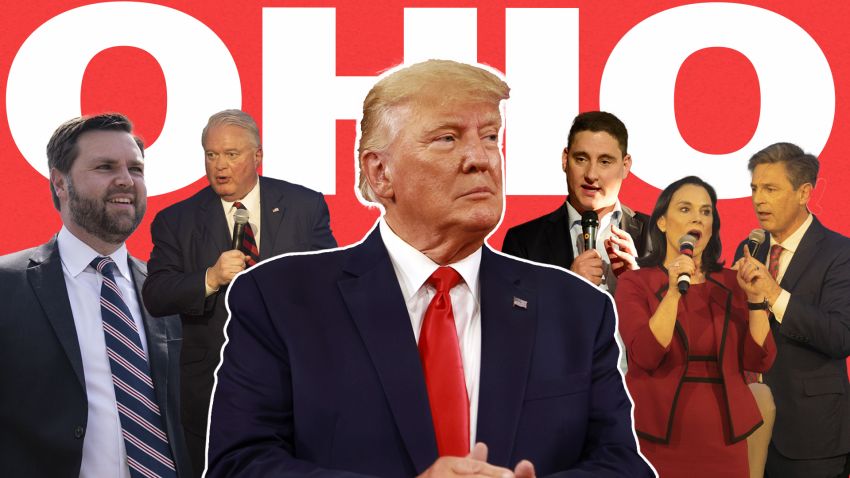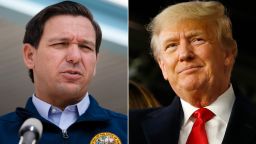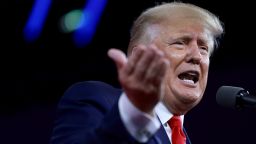Editor’s Note: Michael D’Antonio is the author of the book “Never Enough: Donald Trump and the Pursuit of Success” and co-author, with Peter Eisner, of the book “High Crimes: The Corruption, Impunity, and Impeachment of Donald Trump.” The opinions expressed in this commentary are his own. View more opinion on CNN.
Former Defense Secretary Mark Esper says former President Donald Trump proposed shooting demonstrators during the 2020 protests that followed the police killing of George Floyd in Minneapolis.

In a forthcoming book, the former Pentagon chief confirms a previous report from Michael Bender of The Wall Street Journal, according to Axios. He also adds to an ample body of evidence that the former President is remarkably preoccupied with the use of violence in service to his causes.
“Can’t you just shoot them? Just shoot them in the legs or something?” Esper attributes this statement to Trump as he writes about the summer of 2020 in “A Sacred Oath.” Also reported by Axios, Esper recalls that his refusal to push the military on this idea “wasn’t a difficult decision.” He decided, in the same period, to oppose Trump’s musings to loose the military on protesters under the 1807 Insurrection Act.
In the context of Trump’s record, is there anything surprising in Esper’s recollections? Trump is the man who, also in 2020, called protesters in Minneapolis “thugs” and warned, via Twitter, “when the looting starts, the shooting starts.” (This statement echoed a onetime Miami police chief who used the same words during riots in 1967 and added, “We don’t mind being accused of police brutality.”)
Trump first referred to gun violence in a political context when he infamously declared, “I could stand in the middle of Fifth Avenue and shoot somebody, and I wouldn’t lose any voters.” He also made a veiled reference to gun violence when he said that if Hillary Clinton were elected president, her judicial appointees might be subject to a reaction by “Second Amendment people.” (The Second Amendment grants the “right of the people to keep and bear Arms.”
In other instances on the stump, Trump admired and even encouraged violence that didn’t involve firearms. He called on his supporters to “knock the crap out of” anyone they thought might throw a tomato at him. He also said, “I’d like to punch him in the face, I’ll tell you,” while a heckler was removed from one of his rallies. After a protest at a rally in St. Louis, he complained about how “nobody wants to hurt each other anymore.”
Candidate Trump also showed reluctance to condemn violence reportedly carried out in his name. In August 2015, when two men invoked Trump’s name as they beat a homeless Mexican man, he initially said it was “a shame” but seemed to offer them an excuse, saying his supporters were “very passionate.” It would take two more days for him to say such violence is “unacceptable.”
Anyone who thought the White House might temper Trump after he won in 2016 would be disappointed.
As President, Trump reportedly asked his staff whether asylum-seekers at the US southern border could be shot to prevent them from entering the country. In public, he told police officers they shouldn’t be “too nice” as they deal with criminal suspects. He told the officers that instead of protecting the heads of suspects as they get into patrol cars, “You can take the hand away.” He praised a member of Congress who assaulted a reporter. And throughout his presidency, he expressed admiration for violent dictators.
Why does Trump do it? One answer may be his temperament. When I interviewed him for a biography, he told me directly, “I always loved to fight, all types of fights, including physical.” However, he didn’t offer me an example of trading punches with anyone, and no one, including his classmates from the New York Military Academy, recalled him fighting a fellow student.
When reporters at The Washington Post looked for a fighting Trump, they found no evidence except for a brief scrap with a schoolmate who was just under 5 feet while Trump was 6 feet, 2 inches. The reporters concluded that the tough talk may be a way to connect with his followers. They wrote that it’s “the way he wants the world to see him: as a fighter, a tough guy, even a bully.”
The idea that Trump may want to associate himself with violence makes sense since he has forever dwelled on his image and sought public attention. He surely knows that violence, like sex, sells. He once affirmed, while criticizing pro football players who knelt to call attention to racism, that TV viewers were switching from games to his rallies because they are “a hell of a lot more dangerous.”
Whatever the cause – temperament, image-building or attention-seeking behavior – we must keep in mind where Trump’s talk may lead. If Esper and Bender are to be believed, it led to the President of the United States pushing officials to consider shooting people and, ultimately, it helped set the stage for the January 6, 2021, attack on the US Capitol by Trump’s followers.
The question we’re left to ponder is not whether Trump likes to toy with the idea of using violence. He clearly does. More important is whether he’ll continue to do so, perhaps more intently, if he runs for president in 2024 and wins.



